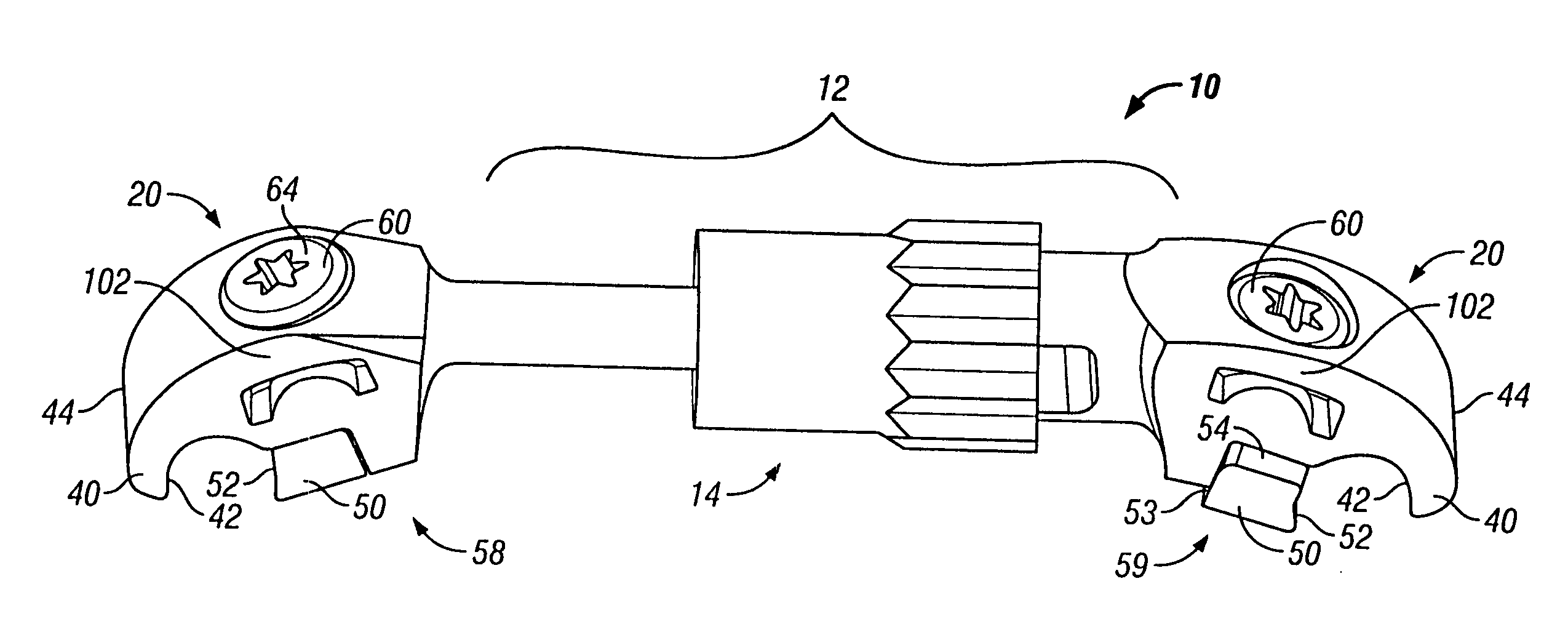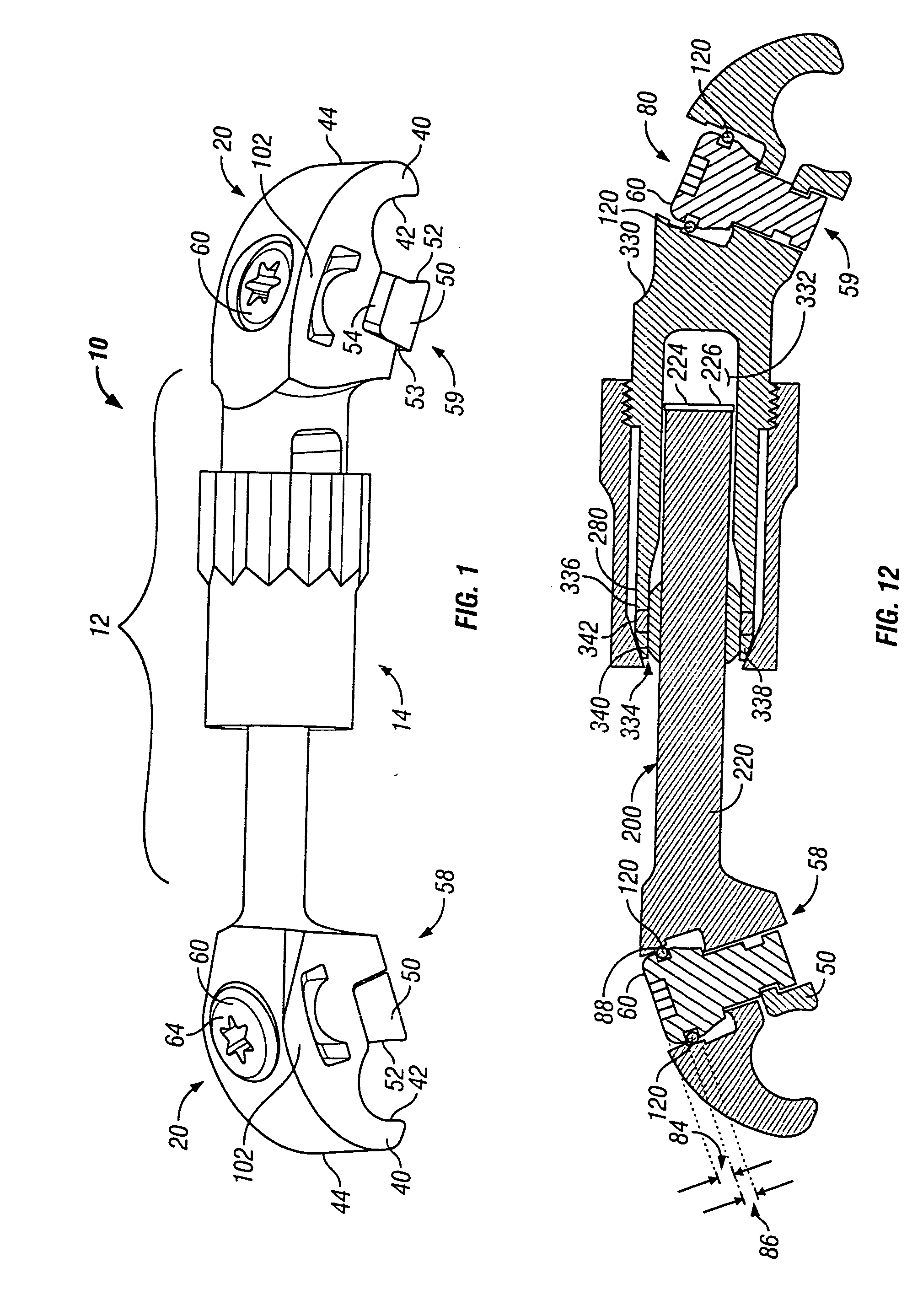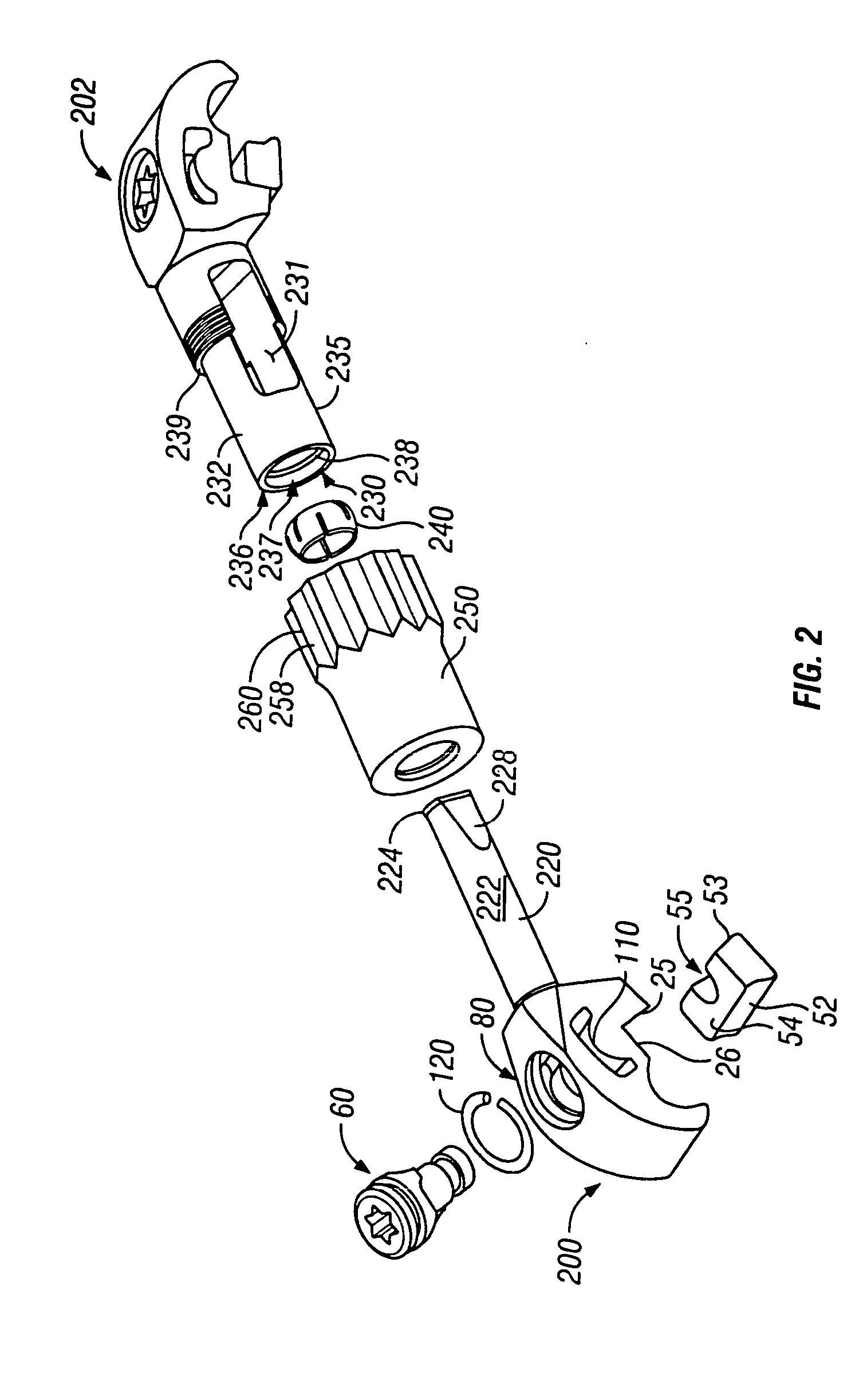Crosslink for securing spinal rods
a technology of connecting member and crosslink, which is applied in the field of crosslink or connecting member, can solve the problems of increasing the number of obstacles encountered affecting the healing process, etc., and achieves the effect of avoiding torque-limiting devices, quick and easy securement, and minimizing the outer dimension of the sleev
- Summary
- Abstract
- Description
- Claims
- Application Information
AI Technical Summary
Benefits of technology
Problems solved by technology
Method used
Image
Examples
Embodiment Construction
[0039] Referring initially to FIGS. 1-3, a crosslink or connecting member 10 is depicted having two connecting ends or connectors 20 and a central span 12. In some embodiments, the central span 12 may simply be a rod or bar-like structure secured to or integral with the connectors 20. In other embodiments, the span may be a central connection portion 14 formed by the two connectors 20 with an ability to be adjusted, as will be discussed in greater detail below. In such a case, one connector 20 may be provided as a male connector or cross rod connector 200, and the other connector 20 may be provided as a rod receiving female connector 202, as will be discussed below. The preferred crosslink 10 may have an overall length, for instance, of 11 mm, 30 mm, 80 mm, or any length therebetween, and may have telescoping lengths covering the same range. However, many other lengths are possible including lengths outside this range.
[0040] The crosslink 10 spans between a pair of spinal rods 30 (...
PUM
 Login to View More
Login to View More Abstract
Description
Claims
Application Information
 Login to View More
Login to View More - R&D
- Intellectual Property
- Life Sciences
- Materials
- Tech Scout
- Unparalleled Data Quality
- Higher Quality Content
- 60% Fewer Hallucinations
Browse by: Latest US Patents, China's latest patents, Technical Efficacy Thesaurus, Application Domain, Technology Topic, Popular Technical Reports.
© 2025 PatSnap. All rights reserved.Legal|Privacy policy|Modern Slavery Act Transparency Statement|Sitemap|About US| Contact US: help@patsnap.com



